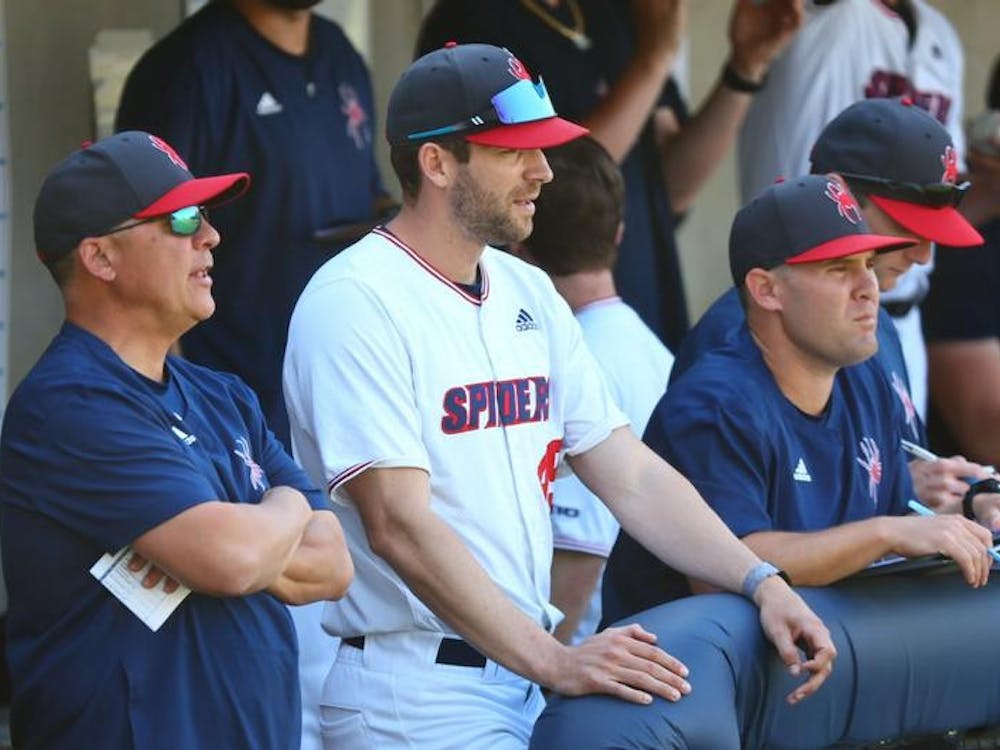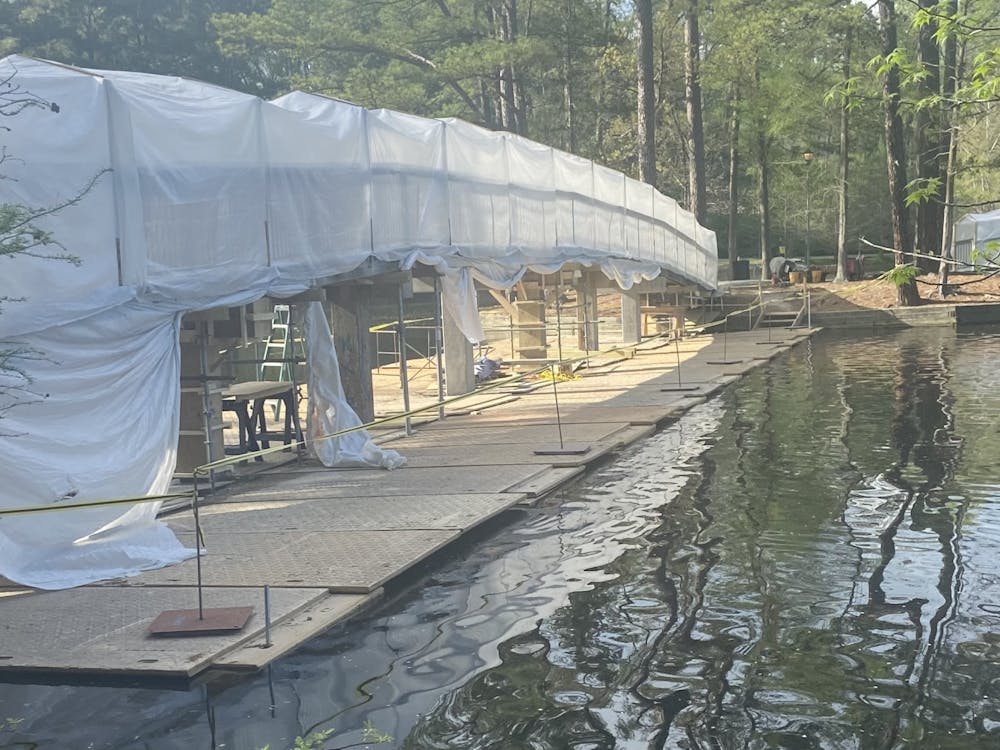The University of Richmond administration significantly reduced its funding for the policy debate team, which has more than a 60-year history at the university, effective at the end of the 2010-2011 academic year.
Andrew Newcomb, dean of the School of Arts and Sciences, notified the debate team by e-mail on Oct. 29. Newcomb said, "While the University of Richmond has been fortunate to be less affected by the world financial troubles than most other institutions, we have not been immune to the need to make budget reductions and resource reallocations."
As a result of the severe budget cuts, Kevin Kuswa, director of debate and rhetoric and communication studies faculty member, faces termination from his role as director.
Under the leadership of Kuswa, Richmond's policy debate team has qualified for the National Debate Tournament seven years in a row.
The team, which has 25-30 members, will face budget reallocation from an estimated $25,000 to $5,000, an assistant coach said. The administration declined to confirm an exact operational or personnel budget.
Richmond debate assistant coach Bary Hausrath said there would be enough money to go to only a couple of regional tournaments based on the budget that the team has been told the program will have next year.
The e-mail sent by Newcomb has prompted debate members to question: Where was the debate about debate?
"No members of the University of Richmond debate team were consulted during this process," junior Lucas Hakkenberg said. "For a school with a strong commitment to student involvement this was tremendously disappointing."
In his letter, Newcomb, whose last day serving as dean is July 1, 2011, stated that the additional funding would be redirected for tenure-track RHCS professors.
The budget adjustment also calls for a transition from policy to parliamentary debate, operating on a student club model.
"Parliamentary debate requires little to no research or evidence while policy debate requires one to pour over hundreds of articles each month," Christine Parker, a sophomore who transferred to Richmond solely to be on the policy debate team said. "Such a switch to parliamentary-style debate would lead to ungrounded and often erroneous argumentation."
Newcomb said that tenure-track professors in the rhetoric and communications department submitted a proposal to transition to a parliamentary debate team after comparing Richmond's program to other programs of the top 50 liberal arts colleges according to U.S. News & World Report.
Enjoy what you're reading?
Signup for our newsletter
They found that only two other top 50 liberal arts universities, with the exception of military academies, have policy debate teams.
The list that RHCS used as a benchmark for judgment excludes Emory University, Dartmouth College, Harvard University, Georgetown University, and Wake Forest University -- nationally ranked colleges that are Richmond's main competition in policy debate.
"There are some questions as to why [the administration] chose the list that they chose," Hausrath said. "It really seems like they put blinders on to pick a list that would allow them to say, 'See, most of the schools [on the list] do parliamentary debate.'"
Fulbright scholar and former debater Nathan Bullock said, "Essentially, the decision was not made with a proper amount of input and knowledge about the effects."
In response to the popularity of policy debate over parliamentary debate, Newcomb said, "All students on campus are always free to create new student organizations if the ones that currently exist do not meet their needs and interests.... If we see a significant groundswell of interest in creating a public policy debate club, as opposed to a parliamentary debate club, I would be happy to discuss how Arts & Sciences funding might be allocated to support one or both clubs."
Students, alums, and debate coaches have all expressed concern that the university's goals are out of line. The success of the Richmond debate team recently landed them on the cover of the alumni magazine.
"To eliminate a team that was successful enough to be featured on the cover of the alumni magazine shows a disconnect between how the university promotes itself and what programs it funds," Hakkenberg said.
The Office of Admissions was also uninformed about the pending decision, which may negatively affect recruiting.
"In the wake of this recent decision regarding the debate team, I feel that I am being cheated out of the 'Division I academics' that the University of Richmond promised me," Parker said.
Freshman Kate Lawrenz, who only looked at schools that offered policy debate, said, "Policy debate is at the heart of a liberal-arts education, and it also holds a special place in the hearts of the UR debate members."
Nehal Shah, a member of the policy debate team from 2002-2006 while attending the university, said that the research skills she gleaned from being on the policy debate team taught her more in one semester than all four years of her college classes. Even after attending law school, she said, her experience in policy debate was often the topic of many of her job interviews.
Shah met Kuswa at a debate camp before attending the university, and her decision to attend Richmond over Emory University was based solely on Kuswa's passion for the debate team.
"Dr. Kuswa is the most brilliant academic person I have ever met," Shah said.
Bullock emphasized the role Kuswa played in his academic career at Richmond.
"He promoted outside research during the semester and summer that helped all debaters get outside exposure to independent research at an even higher academic level, usually reserved for graduate students," Bullock said.
In a letter to debate team alumni stating that the debate team would not go down without a fight, Hausrath proposed a boycott of donations to the university until the full debate budget and position of director of debate was reinstated.
He also started a Facebook group to petition, which has more than 640 members.
Students have started a petition in the Commons to show their support.
"I anticipate proposing support for the club-level debate team at a level consistent with the Mock Trial team," Newcomb said. "In the past, support for the Mock Trial team has included hiring a part-time coach and assisting with operational expenses."
Still, members of the debate team are not ready to settle for any reductions.
"The reason that I have devoted so much of my personal time to coaching U of R students in policy debate over the last eight years is that we desperately need the thoughtful and rigorous discourse that this activity promotes," Hausrath said. "I don't really care how we get the point across as long policy debate survives."
Contact reporter Julie Crandell at julie.crandell@richmond.edu
Support independent student media
You can make a tax-deductible donation by clicking the button below, which takes you to our secure PayPal account. The page is set up to receive contributions in whatever amount you designate. We look forward to using the money we raise to further our mission of providing honest and accurate information to students, faculty, staff, alumni and others in the general public.
Donate Now


